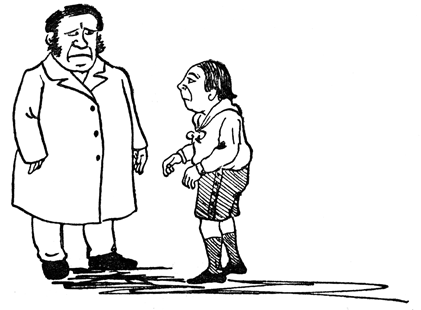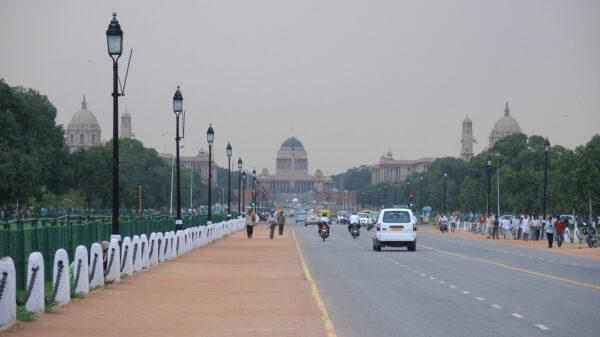Roar writer Keval Nathwani on Hilaire Belloc and his impact that is still present in today’s literature.
Over the last few months I had the opportunity to reflect on my twenty years. In particular, my early school days. I went to a small prep school in the Midlands governed by a junta of matronly women whose disciplinary standards would not have gone amiss in the days of Queen Victoria. Children of just four years old were bullied into a Stockholm Syndrome system under which they felt both love and fear for their teachers. A feeling which rendered many of us mute.
Mrs. Rostance was a particularly fearsome example. She carried a wide frame, spoke in deep, booming tones, and walked with the aid of a crooked wooden cane. No one was ever truly certain at what it was that she used her cane for. One of the principle consequences of this stern upbringing was a deep sense of correct moral behaviour. My friends and I grew up with a clear sense of what was the correct thing to do, lest we incur the wrath of our matronly minders.
In rather more liberal circumstances it occurred to me, as I was leafing through Hilaire Belloc’s “Cautionary Tales for Childrenâ€, that much of my childhood reflected the philosophy imparted in Belloc’s poetry.
“Cautionary Tales†was first published in London, in 1907 by Eveleigh Nash as an anthology of light verse. The 11 poems are all accompanied by the delightful pen and ink illustrations of Belloc’s Oxford friend Basil Temple Blackwood. The famous poems were, according to Belloc, “designed for the admonition of children between the ages of eight and fourteen years,†but retain a sharp and cutting satirical attack on the Victorian Upper Classes, totally imperceptible to the children then and now who enjoy them. The shortest, and perhaps most revealing, of the poems is entitled Algernon:
Young Algernon, the Doctor’s Son
Was Playing with a Loaded Gun.
He pointed it towards his sister,
Aimed carefully, but Missed her!
His Father who was standing near,
The Loud Explosion chance to Hear.
And reprimanded Algernon,
For playing with a Loaded Gun.

Algernon is admonished by his father, an illustration by Basil Temple Blackwood
Notice how poor Algernon’s father happens to be standing near the children playing with a loaded a firearm, but is too engaged in his own implicit bourgeois concerns that he neglects his own children. Only by chance does the father happen to pay attention to his children whereupon he delivers Algernon’s just punishment.
Belloc himself had five children with his wife Elodie Hogan, an American from Napa, California, who died in 1914 from influenza aged 46. Belloc wore mourning clothes for the rest of his life and kept Elodie’s room exactly as she had left it in her memory. He showered his own children with love and devotion, but was rarely with them. He was a prolific writer of over 140 books, essays, pamphlets, histories, treatises, and religious tracts. Belloc also served two terms (1906-1910) as the Liberal, then Independent Member of Parliament for Salford South. Out of this experience he wrote Lord Lundy, a poem with universal applicability in reference to the vain hopes and shallow dreams of an aspiring politician who’s principle flaw was “a tendency to shed tears at the slightest provocationâ€:
It happened to Lord Lundy then
as happens to so many men
About the age of 26
they shoved him into politics.
We had intended you to be
the next Prime Minister but three…
The stocks were sold; the Press was squared:
The Middle Class was quite prepared.
But as it is! . . . My language fails!
Go out and govern New South Wales!
Alongside George Bernard Shaw, and GK Chesterton, Belloc was a member of the Catholic Literary Revival movement. While the movement was largely unofficial and informal, it describes the Catholic themes and sympathies among literary figures at the time. Other famous English participants included, Graham Greene, Evelyn Waugh, Gerard Manley Hopkins, and the newly canonised Cardinal St. John Henry Newman.
For Belloc, the Catholicism with which he was brought up was the central feature of his literary character. Among his literary colleagues, he was the only member who was born and bred a Catholic; the others were all converts. Catholic morals, themes, mores and symbols infused every part of his writing. His belief, “that all wars and revolutions, and all decisive struggles between parties of men arise from a difference in moral and transcendental doctrine,†is emblematic of his uncompromising faith. But more humorously he expressed his faith in his light verse:
“Wherever the Catholic sun does shine, there’s always laughter and good red wine.â€
2020 marks 150 years since Hilaire Belloc’s birth. It is sad that in the literary world this anniversary has gone unnoticed. The pleasure and joy that Belloc has given to children and adults around the world does not cease with the passing of time, but the absence of his works from bookshelves suggests that his universality is in a gradual decline.
In spite of this, Belloc continues to inspire intellectual minds today. The children who enjoy Roald Dahl’s stories illustrated by Quentin Blake are following in the wake of the children who enjoyed Belloc and BTB’s Cautionary Tales. In 1968, Peter Ustinov recorded Belloc’s The Cautionary Tales in 1968 for the Musical Heritage Society, and Stephen Fry has put his inimitable voice to Belloc’s children’s poetry by recording an audio collection.
It is, therefore, in the minds and memories of children around the world where Belloc’s true legacy lies. Not since this giant in the English literary canon has a poet of such all encompassing stature emerged, nor is it likely will there ever be another.

















